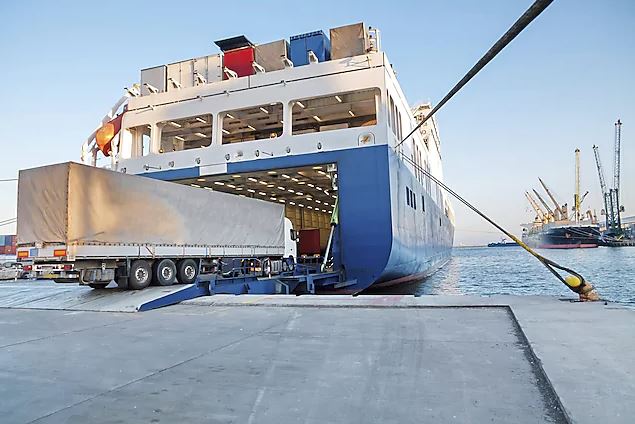A new Shell and Deloitte study says that road freight executives and experts view hydrogen fuel cell electric vehicles as the most viable long term zero-emission truck technology.
Besides hydrogen and batteries, low emission fuels such as LNG and bioLNG will also play their role in decarbonising the sector, the study finds.
Shell and Deloitte published last week the joint study named the “Decarbonising Road Freight: Getting into Gear”. To remind, the duo issued a similar study in July last year but for the shipping industry, confirming LNG as one of the main transition fuels.
The new study provides insight on how to decarbonise the road freight sector. According to the study, more than 70% of the 158 interviewees consider decarbonisation as the leading or top 3 priority for their organisation.
The report shows that more than 70% of study participants view hydrogen fuel cell electric vehicles and battery electric vehicles as the most viable long term zero-emission heavy duty truck technology, and many believe these trucks will become commercially viable in the next 5 to 10 years.
“Trucks move virtually everything modern society depends on for daily life and during the current Covid-19 crisis, society has experienced just how critical road freight is in delivering essential goods,” said Huibert Vigeveno, downstream director at Shell.
However, Vigeveno says road freight is currently responsible for around 9% of global CO2 emissions. With demand for road freight services set to double by 2050, the industry needs urgent action now to put the sector on a pathway to net zero emissions by then.
“Fleet companies, truck manufacturers and energy providers have already started investing in low and zero emission solutions, but the sector requires a more robust set of policies and regulations to accelerate change,” he said.
22 solutions including LNG
The report offers a detailed 10-year roadmap with 22 solutions aimed at addressing the economic, technical, regulatory and organisational factors influencing the sector’s ability to decarbonise.
The report says if the industry aims to meet the goal of the Paris agreement, absolute emissions from road freight need to decline almost 60% by 2050 versus a 2018 baseline, despite an expected doubling of road freight volume over the same period.
Moreover, 80% of study participants perceive a lack of regulatory incentives and the complexity of infrastructure replacement to be major barriers to decarbonisation, while 70% see limited demand from customers as a major barrier.
Low emission fuels such as LNG, bioLNG, compressed natural gas and biodiesel should be commercialised quickly around existing points of supply, but not where they could disrupt the deployment of zero-emission solutions, the report says.
In addition, one of the key findings of the study says that fleets with diesel powered trucks could achieve immediate emission reductions by improving truck design, employing digital solutions to optimise fleet management and using higher quality fuels and lubricants.
Shell to slash its own truck emissions by 30%
“The next 10 years will be critically important for the road freight sector to introduce zero emission vehicles into the global fleet, and it is very encouraging that road freight leaders have already begun to align on a technology pathway,” said Carlos Maurer, executive vice president of sectors and decarbonisation at Shell.
“We believe that once produced at scale, hydrogen will likely be the more cost-effective and viable pathway to net zero emissions for heavy duty and long-route medium duty vehicles, and electric mobility will do the same for light duty and short-route medium duty vehicles, he said.
Maurer added Shell has already started taking steps to make these energy solutions available to customers and the firm is partnering with others to expand these efforts.
That is why Shell has also released a companion report named “Decarbonising Road Freight: Shell’s Route Ahead” outlining Shell’s role in helping the sector decarbonise.
The report outlines Shell’s climate ambition and plans to reduce the emissions intensity of its fleet of close to 3,000 contracted road haulage tankers by 10% by 2025 and by 30% by 2030, both compared to 2018 figures.

